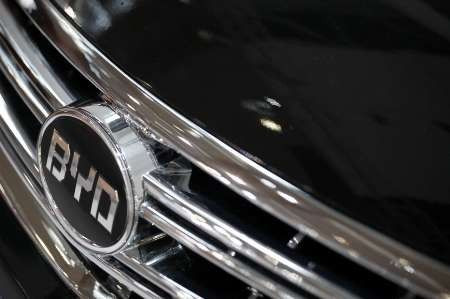Can Daimler partnership give China’s electric car startup BYD a lift?

If you've followed the auto industry for a while you'll know that automakers are always sharing technology and projects in cross-collaborations that would normally make any paranoid hard-nosed capitalist weep in fear. But the latest firms to receive official blessing for a joint project might not be the strange bedfellows they appear at first.
The unimaginatively named Shenzhen BYD Daimler New Technology Co Ltd has just been given a business licence by Chinese authorities nine months after the firms publicly announced their intent to work together.
BYD's reputation in the electric car industry has been severely tarnished over the past few years as self-set deadlines on the U.S. introduction of its five seat e6 electric car (pictured) have flown by.
Initially promised to come to market in 2010, the BYD e6 is now promised to select fleet customers by the end of 2011, with a range of 200 miles, an upgraded interior on the original Chinese version and an unbelievably low price-tag of $35,000 before incentives.
So why would Daimler, an automaker known for its luxury high-end Mercedes-Benz and Maybach divisions want to associate with an automaker whose sales of plug-in vehicles has been less than stellar, especially when it has an active 3.1 percent stake in the highly electric-car friendly Renault-Nissan under a joint electric car venture?
The answer may be simpler than it seems. Reputation.
Despite protests to the contrary, we've heard from many ex-pats that BYD isn't a popular car brand in China. Given a choice, the growing middle classes in China prefer to buy prestige brands from Europe or America, using top-specification Mercedes-Benz, Audi or Chrysler vehicles.
These upper middle-class status-symbol cars embody the drive towards externally capitalist lifestyles in what is still a communist country, while those without the means are left to drive Chinese brands. China now even has its own version of the gear-jamming, consumerist Top Gear show, increasing desirability of non-Chinese brands.
But it gets more complicated. Technically, a firm wishing to enter into the Chinese market must offer the Chinese government a majority shareholding - a risk for any large company wishing to enter the Chinese market.
The solution for Daimler? A partnership with BYD.
It's a symbiotic relationship. Daimler not only gets to benefit from BYD's extensive battery knowledge and manufacturing facilities, but it gets to further reach into a market crying out for its products without risking the company's future.
In exchange, BYD receives extra credibility and upper-class appeal by associating itself with a brand known for luxury, reliability and exclusivity.
While there may be all kinds of success for Shenzhen BYD Daimler New technology Co Ltd, we'd like to offer BYD and Daimler a little advice of our own: While you're firm buddies in China, you're still competitors elsewhere.
© Copyright Thomson Reuters 2024. All rights reserved.





















